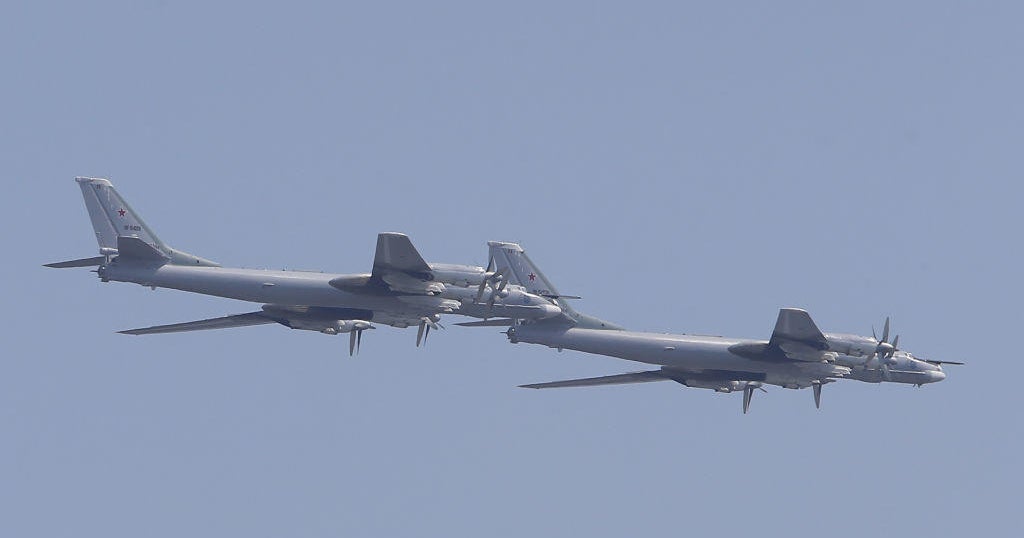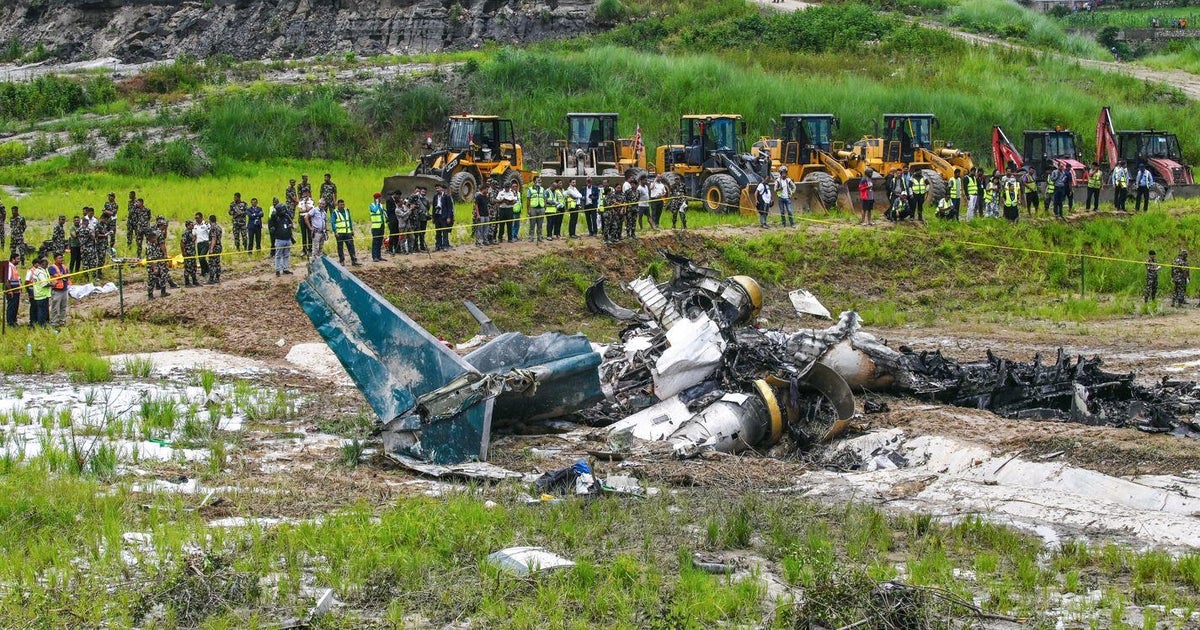Flurry of Houthi missiles, drones fired toward Red Sea shipping vessels, Pentagon says
Multiple missiles and drones fired in the direction of commercial vessels in the Red Sea were launched from Houthi-controlled areas of Yemen Tuesday night, the Pentagon said, the latest in a series of such attacks that have been ongoing for months. There were no reports of damage or injury.
Eighteen drones, two-antiship cruise missiles and one anti-ship ballistic missile that were fired at about 9:15 p.m. local time by Iranian-backed Houthi rebels were successfully shot down, U.S. Central Command reported.
The drones and missiles were shot down by a "combined effort" of fighter jets from the aircraft carrier USS Dwight Eisenhower and the missile destroyers USS Gravely, USS Laboon and USS Mason, along with the United Kingdom's Royal Navy destroyer, the HMS Diamond.
A U.S. official told CBS News it was unclear what the drones and missiles were targeting, but there were several commercial ships in the area.
Yahya Saree, a military spokesman for the Houthis, said Wednesday that the group had fired a "large number" of missiles and drones at a U.S. ship "providing support" to Israel amid its war against Hamas in Gaza.
The Houthi militant group — which controls large portions of Yemen — has been attacking commercial vessels in the Red Sea since the Palestinian militant group Hamas launched its Oct. 7 terror attack on Israel, killing at least 1,200 people, according to Israeli officials, and sparking the ongoing Israel-Hamas war. In response, the U.S. military has been pushing for an international task force to protect commercial vessels traversing the Red Sea.
Tuesday's strikes marked the 26th such Houthi attack on Red Sea shipping lanes since Nov. 19, CENTCOM said.
On Dec. 30, CENTCOM said the USS Gravely shot down two ballistic missiles fired by the Houthis while it was responding to assist a container ship, the Maersk Hangzhou, which had been struck by a Houthi missile.
No one was injured in that missile strike. However, several hours later, early on Dec. 31, four Houthi boats attacked the Hangzhou — which is Danish-owned but sails under a Singaporean flag — in an attempt to board it.
Responding U.S. forces opened fire, sinking three of the four Houthi boats and killing their crews, CENTCOM said.
The White House last month accused Tehran of being "deeply involved" in the Houthi's Red Sea attacks, an allegation Iran's deputy foreign minister denied.
In a Nov. 15 interview with CBS News, Iranian Foreign Minister Hossein Amir-Abdollahian also denied that Iran was responsible for a drone fired from Yemen that was shot down by the guided-missile destroyer USS Thomas Hudner. The drone appeared to be targeting the Hudner, U.S. officials said at the time.
"We really didn't want this crisis to expand," Amir-Abdollahian told CBS News, referencing the Israel-Hamas war. "But the U.S. has been intensifying the war in Gaza by throwing its support behind Israel. Yemen makes its own decisions and acts independently."
In response to the attacks, energy giant BP said last month it was temporarily suspending all gas and oil shipments in the Red Sea. And home furnishing giant Ikea also said that it could soon face shortages because major shippers were being forced to bypass the Red Sea — a vital link between the Mediterranean and the Indian Ocean that is the shortest trade route between Europe and Asia — according to the Freights Baltic Index.
— Eleanor Watson and Elizabeth Napolitano contributed to this report.




